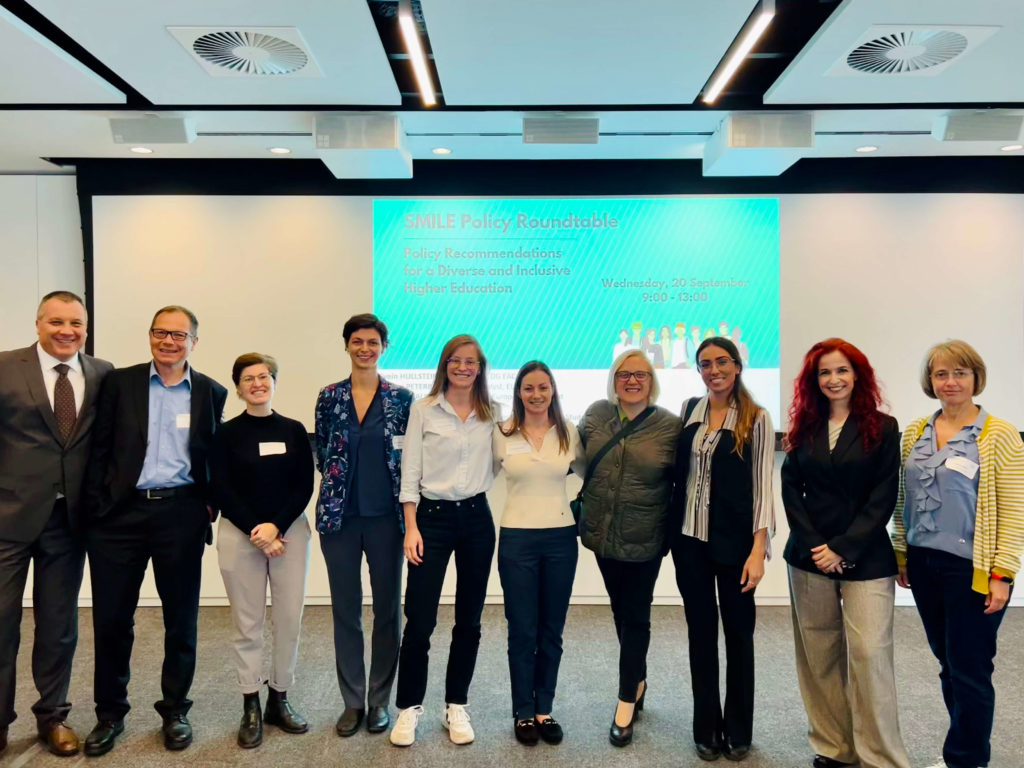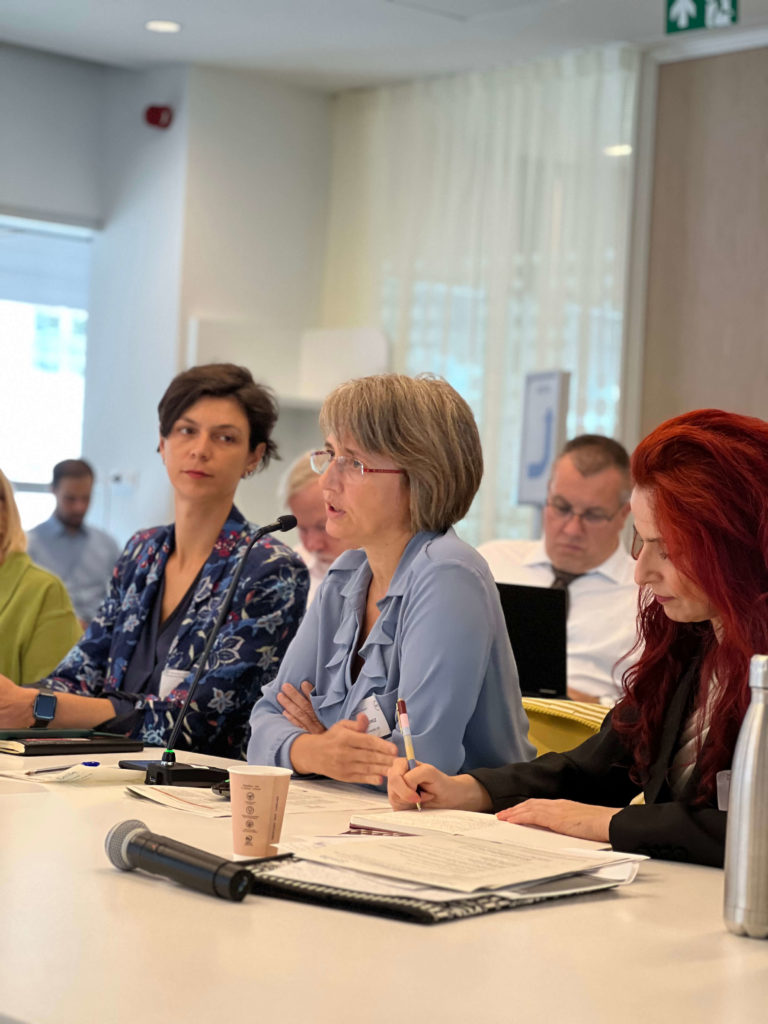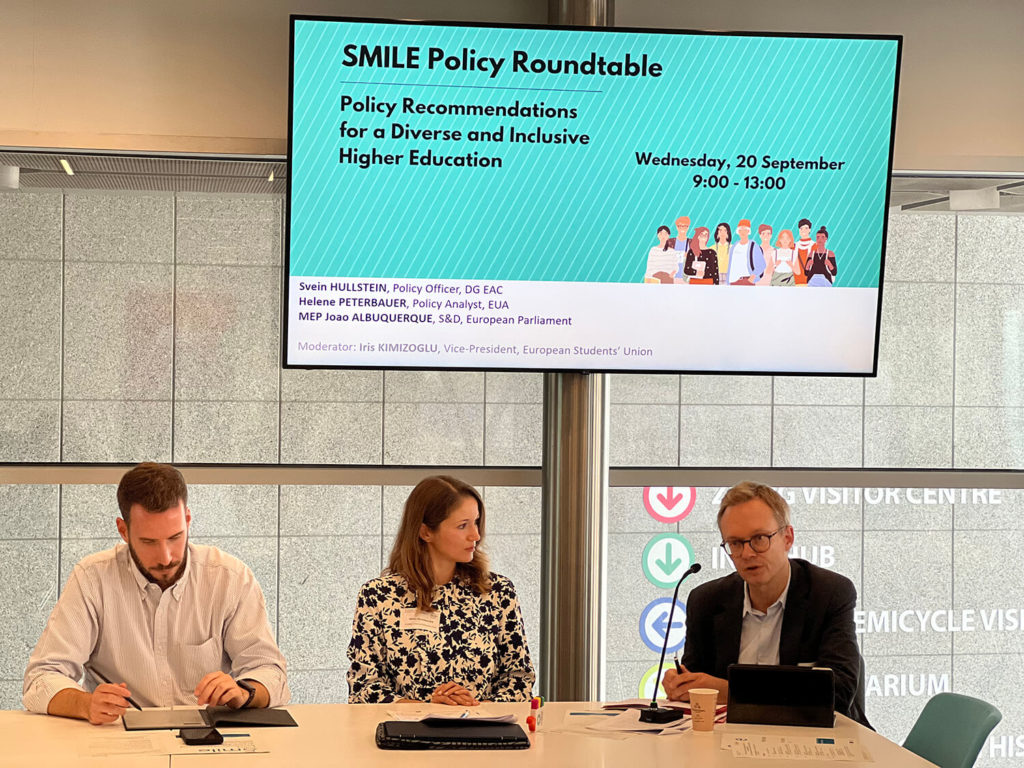In a round table at the European Parliament, with the participation of the UB Solidarity Foundation, the 10 SMILE principles for more diverse and inclusive societies were discussed.

The SMILE project (Social Meaning Impact through LLL Universities in Europe), co-funded by the Erasmus+ programme, has organized, on September 20 at the European Parliament, the round table “Policy recommendations for a diverse and inclusive higher education”, with two interventions by the coordinator of the UB Refuge Program, Cati Jerez.

SMILE has developed a set of tools and courses on diversity and inclusion that can help policy makers, higher education institutions and civil society to improve their strategy for a better and more suitable implementation of inclusion approaches and to encourage their collaboration in the future.
The round table has presented the resources developed by the project; in particular, the Policy Recommendations and Action Plan, with the aim of discussing their suitability and realistic use in Europe.
SMILE Policy Recommendations and Action Plan

The SMILE Policy Recommendations and Action Plan identify 10 points, the SMILE
Principles, that are crucial to creating more diverse and inclusive societies. Some of these points are transversal and cross-cutting in nature, such as the need to apply an intersectionality analytical framework to inclusion and diversity policymaking to ensure equity in education.
In other words, these policies must take into account that marginalized individuals often belong to multiple traditionally disadvantaged groups and, as a result, are discriminated against for different reasons at different levels. For example, a migrant background student may also have low socio-economic status and, if this student happens to be a woman, it may be an even bigger challenge for her to access and successfully complete her studies.
On the other hand, SMILE policy recommendations argue that, to facilitate diversity, it is necessary to:
- enable flexible pathways in higher education for everyone;
- offer staff training on diversity and inclusion at different levels, from administration to management;
- identify and use inclusion and diversity-oriented funding opportunities.
As noted during the panel discussion, higher education platforms consist of a wide range of diverse groups, so they are a good place to implement inclusion strategies.
SMILE partners
The Solidarity Foundation of the University of Barcelona is one of the four civil society organisations from Belgium and Spain that participate in the SMILE project, together with six European universities from Germany, Ireland, Italy, Finland, Malta and Romania. The project is coordinated by eucen (European university continuing education network).
This news is related to the following SDG of 2030 Agenda:








